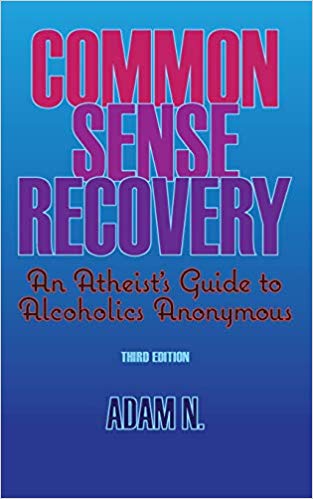 This book was never meant to be published. Written over time as a personal project of trying to understand what it means to be an atheist in AA, it is the distillation of the author’s personal thoughts on every aspect of the situation, and there are many. It contains the essence of his journey towards completeness, as an atheist and an anonymous alcoholic, a person who has found his way in sorting out the tension between the two and arriving at peace and wholeness for himself.
This book was never meant to be published. Written over time as a personal project of trying to understand what it means to be an atheist in AA, it is the distillation of the author’s personal thoughts on every aspect of the situation, and there are many. It contains the essence of his journey towards completeness, as an atheist and an anonymous alcoholic, a person who has found his way in sorting out the tension between the two and arriving at peace and wholeness for himself.
Beginning in a very traditional AA manner with “his story”, qualifying as both an alcoholic and an atheist, he starts in familiar territory. Many of us who share this dual citizenship will immediately feel at home here: the beginning, the bottom, the early success in AA, the growing tension with the unremitting religion, a break from the meetings, a relapse, and finally success as an atheist in AA; this is a familiar story.
Adam is a spy in a subculture within a subculture; he has to figure out the language and mores of this strange place in order to survive. What does one do in such a situation?
Throughout the essays, he points out the solid, human, values and concepts in AA, brought in perhaps by its religious roots, but equally valid without them.
Based on his own success in making a secular framework with which he can succeed in today’s AA, even as a spy in the enemy camp, he hints at a vision for a future AA where atheists are not only more tolerated, but where they actually add to the value of the program:
Taking atheism seriously, and in particular the “Recovery Sciences”, is not really a threat to AA. On the contrary, such an approach is all about taking what works in AA and expanding upon it, a synthesizing approach which guarantees the kind of elasticity and flexibility which will ensure the survival of the best of what AA has to offer for the generations to come.
In summary, the essays in this book explore in depth the confrontation of AA’s religious culture and practices with this rational atheist alcoholic. They explore the place of science in recovery, and explain why traditional AA struggles to embrace new scientific findings and incorporate them into its agenda. The supreme importance of the fellowship, as a healing community or tribe, with all that implies for social human beings, is examined. Powerful arguments are presented for the idea that a secular AA would not lose any of its present efficacy, but could be even more effective, maybe much more effective, and would certainly help those alcoholics now repelled by religion.
Adam has quite remarkably in this book woven a practical and viable way forward for AA. Common Sense Recovery: An Atheist’s Guide to Alcoholics Anonymous offers an understanding and appreciation of AA’s early religious culture that nevertheless and inevitably calls upon us to embrace new research and scientific findings – as well as the experience of women and men in recovery over the past 75 years – and incorporate them into an understanding of our program and fellowship.
The book ultimately offers an enticing way forward for AA. A must-read for all of us in AA, and especially those of us who recognize that it is time for our fellowship to take the next crucial steps forward.
Common Sense Recovery is available at Amazon USA as a Paperback or as a Kindle.
There is now an audio version of the book. To access it, click here: Audible.
























